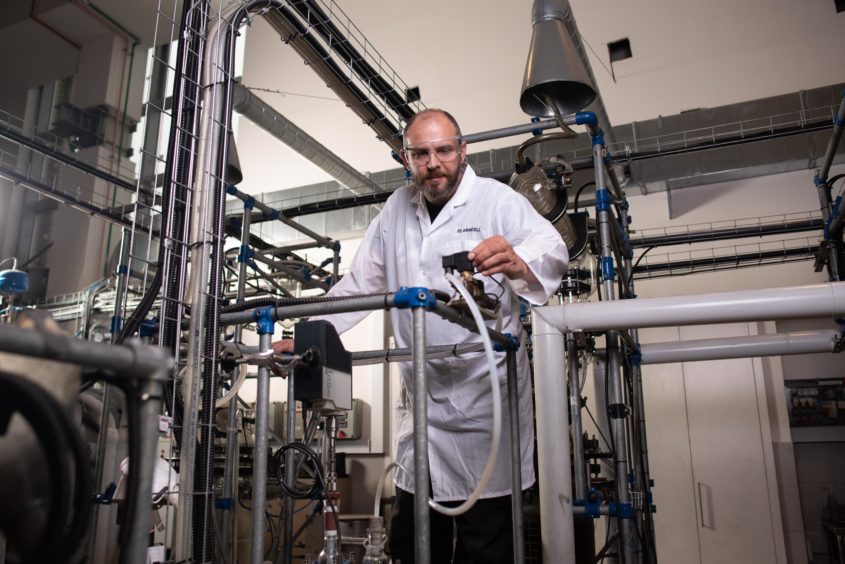
Hydrogen is becoming an increasingly popular option for those thinking about the future, sharing as it does some traits with petroleum products while its consumption emits no carbon.
“It’s time to say no to diesel,” GenCell Energy’s co-founder and CEO Rami Reshef told Energy Voice. The Israeli company listed on the Tel Aviv Stock Exchange in November, raising 205 million shekels ($63mn). Proceeds from the IPO are to go to R&D and invest in production lines, with a move to increased automation and reduced costs.
“The only way to achieve decarbonisation is to stop using fossil fuels. The only alternative is hydrogen-based technology. Hydrogen is the most natural transition from fossil fuels.”
Reshef predicted that by 2040, hydrogen would account for 20% of the energy market. “I can see the growth,” he said. “Fuel cell technology is here today.” GenCell offers the GenCell G5, a hydrogen fuel cell-based uninterruptible power supply.
The executive said they had founded GenCell with the aim of bringing fuel cells, which had been the preserve of NASA, to earth. The fuel cells used in space are built with no eye on cost and use noble metals, more expensive than gold.
“We have overcome the capex challenge and we’re reducing opex, in order to provide hydrogen in economical and affordable ways. We’re the only company to have removed platinum from the catalyst. We’re the only company to work with liquid fuel, ammonia, as the hydrogen carrier.”
GenCell provides power units, with a particular aim on generation for critical infrastructure or in areas far from power connections. “The solution is completely green, but doesn’t rely on Mother Nature. It can run 24/7. There are no moving parts and maintenance is low, while the fuel costs less than diesel.”
Emissions
Uptake has been driven by developed economies, the CEO said, where there is more focus on the idea of net zero emissions.
“I have no doubt that emerging markets will follow if we can provide the right solution. These new markets are very sensitive to cost so we must compete with diesel generators. I believe our technology can challenge diesel.”
People’s attitudes towards fuel cells are changing, Reshef said. The world only began to accept the opportunity in early 2019. As governments and major companies are getting to grips with the idea of reducing carbon emissions, hydrogen is gaining ground.
For now, the production of ammonia is a major source of emissions. Reshef called for green ammonia as a solution to this problem.
“There’s been strong investment in renewables but generation doesn’t sync up with demand, so there are periods where excess power is available. How do you store it? Pumped storage? Batteries? We believe chemical storage is the ultimate answer, to produce green ammonia,” he said.
There will be no one power source to dominate the world’s future energy mix, Reshef continued, making the case for a variety of sources. “The challenge will be to manage a distributed grid. Fuel cells could be the ultimate way to compensate for [renewable intermittency].”
Recommended for you

